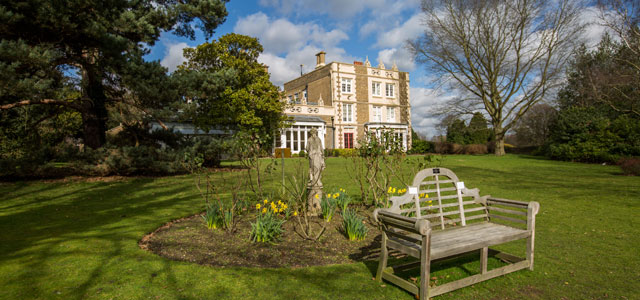Buying and Selling Freehold and Leasehold Property
There are some key differences between freehold and leasehold property and it is important to understand the implications if you are buying or selling a leasehold, to ensure the conveyancing process is as quick and smooth as possible.
Set out below are answers to some common questions in respect of buying and selling freehold and leasehold property. For more information about our conveyancing services, see our Residential Property Solicitors page.
What is the difference between freehold and leasehold property?
If you are buying freehold property, you will own it outright, to include the land and buildings specified in the title.
If you are buying leasehold property, you own the premises specified in the lease for the term of the lease only. When the lease ends, ownership of the property reverts to the freeholder, unless the lease is extended. A lease can generally be extended, but there will be a cost for this, sometimes a substantial one.
If the property is a flat, then the building and land on which it stands will usually be owned by a landlord or by a management company set up specifically to deal with the freehold. It will be the freeholder’s responsibility to insure the property and arrange for maintenance to the exterior of the building and any shared garden area. The leaseholders will pay the freeholder for this as well as any other charges usually by way of a monthly service charge.
There may also be a contribution to a sinking fund, money which will be available to cover any larger items of expenditure such as a new roof.
In addition, a leaseholder will usually pay an annual rent to the freeholder which is known as Ground Rent. Ground Rent can be a fixed sum or escalating sum. If it is fixed it means that it remains unchanged throughout the term of the lease. Escalating Ground Rents will increase during the course of the lease. The lease will specify when the Ground Rent will increase and by how much. This sum is usually paid on an annual or half yearly basis.
What are the advantages of buying a freehold property?
Owning a freehold means that you will not have to pay ground rent or service charges to anyone and that you own both your property and the land on which it stands until such time as you choose to sell.
However, if you buy a flat, it should be a leasehold title because the lease will include rights and responsibilities for all flat owners as well as the landlord. These will ensure that the property is insured and maintained and restrict the leaseholders’ behaviour, for example, by banning noise after a certain time in the evening. You could also own a share of the freehold with other flat owners, but it is important that the lease remains in place.
How is owning a leasehold property different to owning a freehold property?
If you own a leasehold property, you will be required to pay ground rent as well as the freeholder’s other charges. You will also have to abide by the conditions in the lease.
Where the property is a flat, the freehold may be owned by a landlord or by a management company set up specifically to deal with the property. If there is a management company, then usually one owner from each flat will be a director of the company.
The company will be responsible for carrying out all of the obligations contained in the lease, such as insuring and maintaining the building and giving consent for work proposed by individual flat owners. The company will also have to arrange collection of regular payments from the flat owners to pay for all of the expenses incurred.
How is buying a leasehold property different to buying a freehold property?
In buying a leasehold property, you need to consider how long is left on the lease. Once a lease falls below a certain number of years, mortgage lenders will refuse to lend.
While there may be enough time left on the lease for you to secure a mortgage, it might be that when you come to sell in the future, there will not be enough years left for a buyer to obtain a mortgage, which will severely restrict the market and mean that the property will be worth less.
The amount of time required on a lease varies from lender to lender, but generally it may be difficult to sell a property with less than 80 years remaining. Currently, it is recommended that if the lease is 82 years or below at the time of purchase, that a lease extension is carried out. Your solicitor will explain the options available to you in relation to the lease extension.
If you are buying a leasehold property, your solicitor will be provided with a copy of the lease and explain the obligations and restrictions to which you will be subject as the new leaseholder as well as information relating to the management of the building of which the property forms part.
If there are management company accounts, your solicitor will look at these and advise you of the amount in any sinking fund and also check that adequate buildings insurance is in place.
If the property you are buying is a leasehold house, your solicitor will advise you of your obligations under the lease and the amount of any ground rent payable.
Because of the additional information that is required, a leasehold purchase often takes longer than a freehold purchase.
How is selling a leasehold property different from selling freehold property?
If you are selling leasehold property, you will need to supply copies of management company information. This is usually obtained from the freeholder or management agent appointed by the freeholder subject to payment of their administration fee. Your solicitor will usually obtain this on your behalf once the administration fee has been paid.
How to find out if a property is leasehold or freehold
The title to a property will state whether it is leasehold or freehold. Your solicitor will be able to check this for you and provide you with a copy of the title and lease, if there is one.
How to extend the lease on a leasehold property
Once you have been registered as the legal owner for two years, you generally have the right to extend the lease by 90 years. You can negotiate with the freeholder on an informal basis to see if they are willing to grant an extension but the freeholder is not required to agree anything informally if they choose not to do so. In this case you would be required to serve a formal notice under Section 42 of the Leasehold Reform, Housing and Urban Development Act 1993 of your right to claim a lease extension from the freeholder.
You will need to pay a premium to the landlord for the extension. The amount payable should be determined by a surveyor who is a lease extension specialist. Generally, the premium payable is calculated on the basis of the value of the property, improvements made during your ownership, the time remaining on the lease and the amount of ground rent you pay.
The less time remaining on the lease, the more it will cost to extend it, hence why the costs for a lease extension are significantly greater once the term unexpired is below 80 years. In addition please note that you will be liable to pay not only your own legal costs but also the legal costs of the freeholder when undertaking a lease extension.
If you and your landlord cannot agree on a sum, it is possible to apply to a First-Tier Tribunal (Property Chamber) for a decision on a fair amount.
You should generally instruct a solicitor to deal with the extension on your behalf to ensure that the documentation is legally sound.
What happens to a leasehold property when the lease expires?
When a lease expires, the property reverts to the freeholder and the leaseholder no longer has the right to live there.
How much does it cost to buy the freehold of a leasehold property?
As a leaseholder, you may have the right to buy your freehold for a fair market price. The premium payable will be determined by a surveyor who specialises in the enfranchisement of leasehold properties.
How much value does buying the freehold of a leasehold property add?
This depends on the amount left on the lease and the property in question. If the leasehold is a house with a particularly onerous ground rent clause, then it may be difficult to sell and buying the freehold could add substantially to its value.
If the property is a flat with the remainder of a 999-year term, then owning the freehold will add little to the value of the property.
It is advisable to speak to a legal expert in residential property if you are considering buying a freehold to ensure you will not be paying over the odds.
Contact our residential conveyancing solicitors in Sidcup
If you are considering buying or selling a property or extending your lease and you would like to speak to experienced residential conveyancing solicitors, we would be happy to hear from you.
Our team have extensive expertise in all areas of residential property and are particularly known for our skills in dealing with new build property, high value property, leasehold property, sale of properties during probate and repossessions.
To speak to our residential property lawyers in Sidcup, the London Borough of Bexley, Kent, call us on 020 8300 9321 or email us at enquiries@wmk-law.com.
-
- Pam Grewal
- Solicitor, Head of Conveyancing


